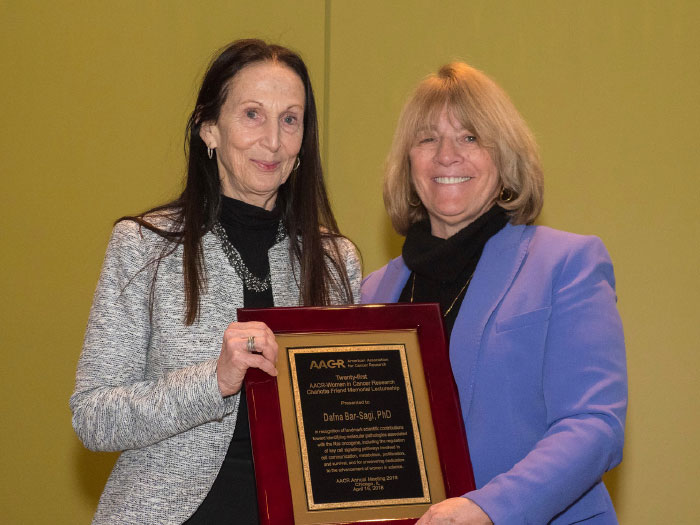MEMBERS BY CATEGORY
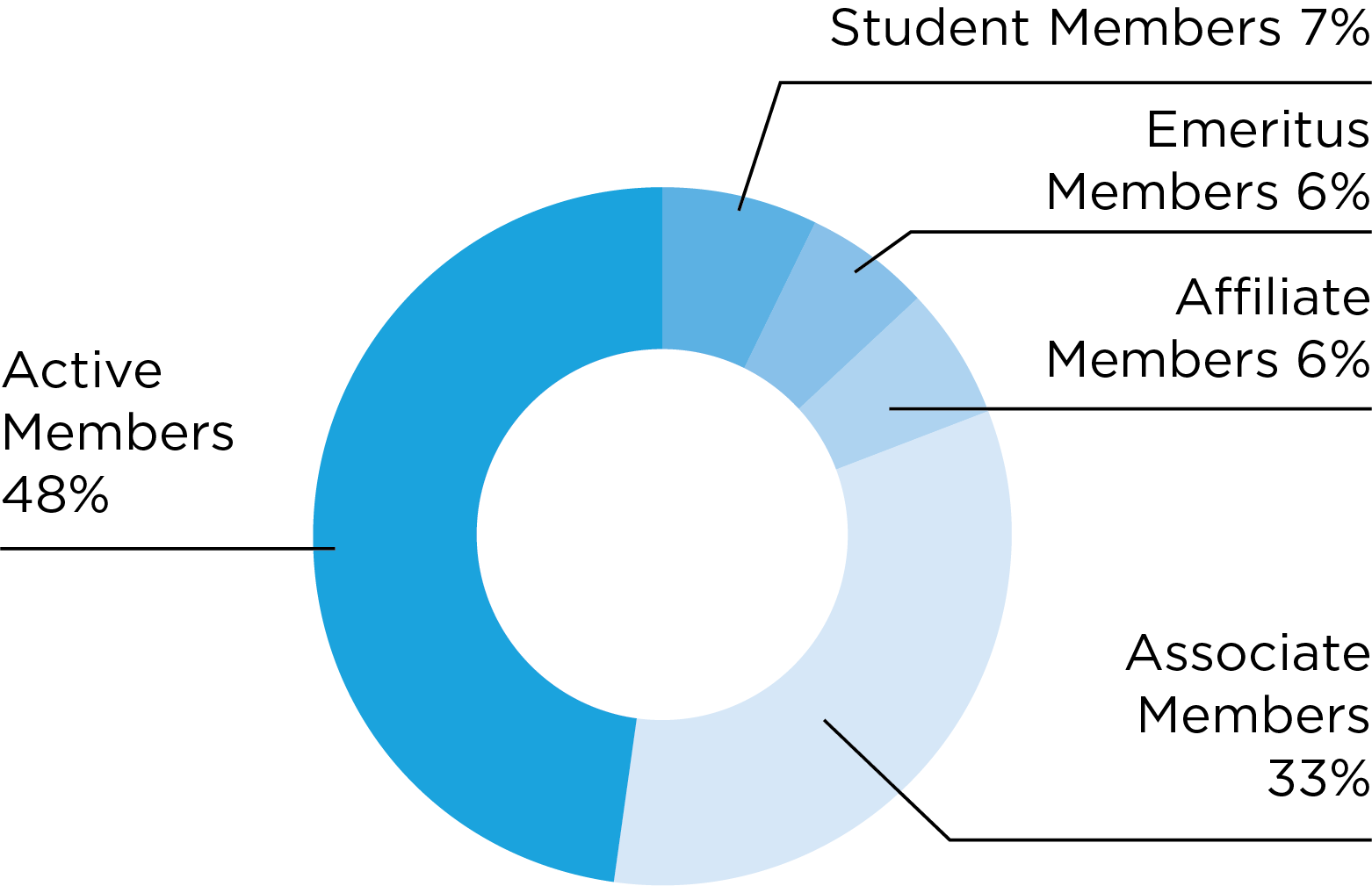
Active Members: Established laboratory researchers, physician-scientists, clinicians, and population scientists
Associate Members: Young laboratory scientists and physicians-in-training (graduate students, medical students and residents, and clinical and postdoctoral fellows)
Student Members: Undergraduate and high school students
Emeritus Members: Active members who have reached the age of 70 years
Affiliate Members: Other health care professionals (practicing oncologists, nurses, laboratory technicians, non-scientific corporate professionals, and patient advocates)
New members joined the AACR in 2018.
Nobel laureates have been members of the AACR, including James P. Allison, PhD, FAACR, who was awarded the Nobel Prize in Physiology or Medicine in October 2018 for his shared discovery of cancer therapy by inhibition of negative immune regulation.
Individuals have been AACR members for more than 25 years.
Individuals have been AACR members for more than 50 years.
Countries are represented by AACR members.
Patient advocates are members of the AACR.
Note: Totals may not equal 100% due to rounding.
MEMBERS BY LOCATION
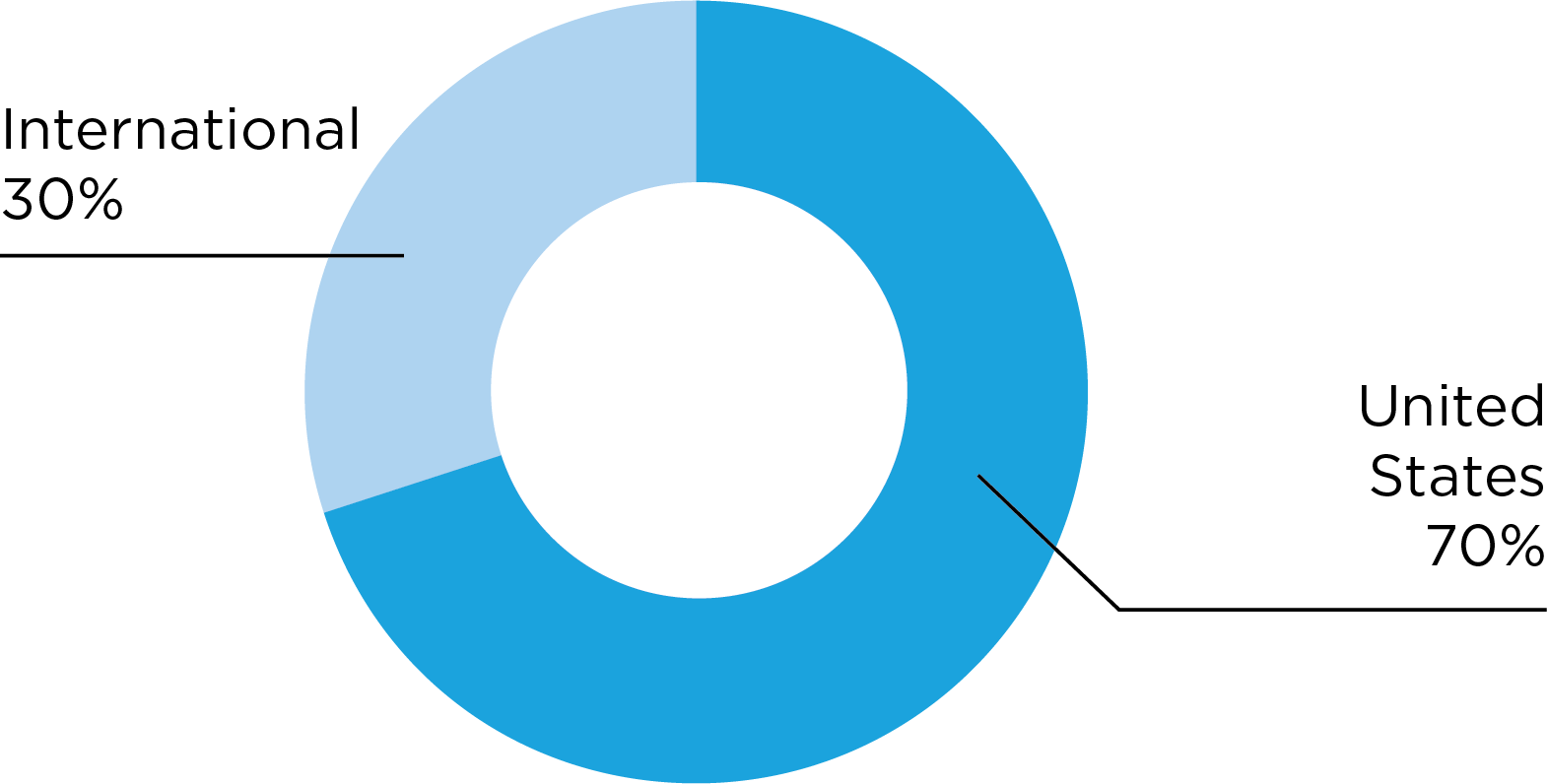
MEMBERS BY RACE/ETHNICITY
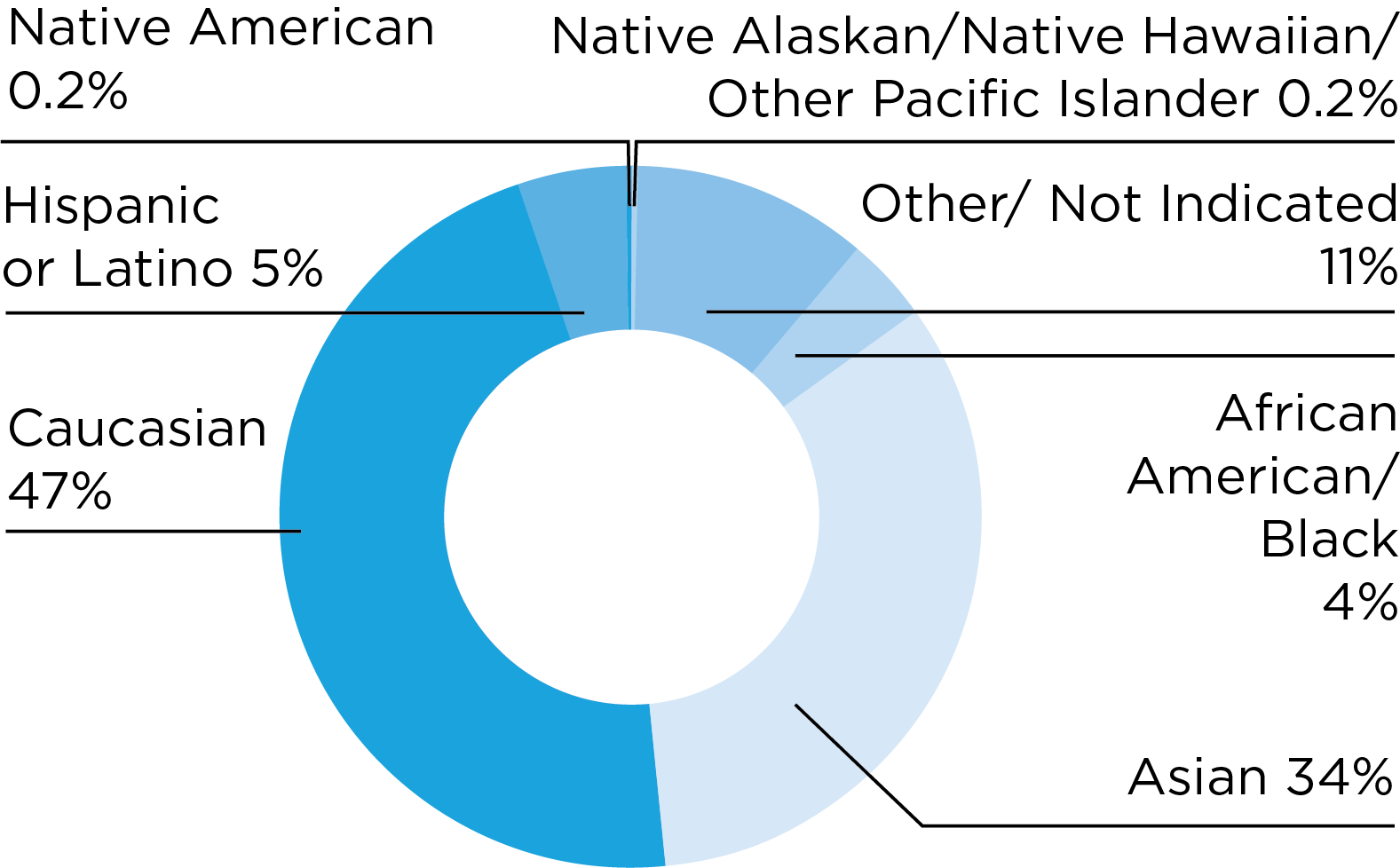
MEMBERS BY GENDER
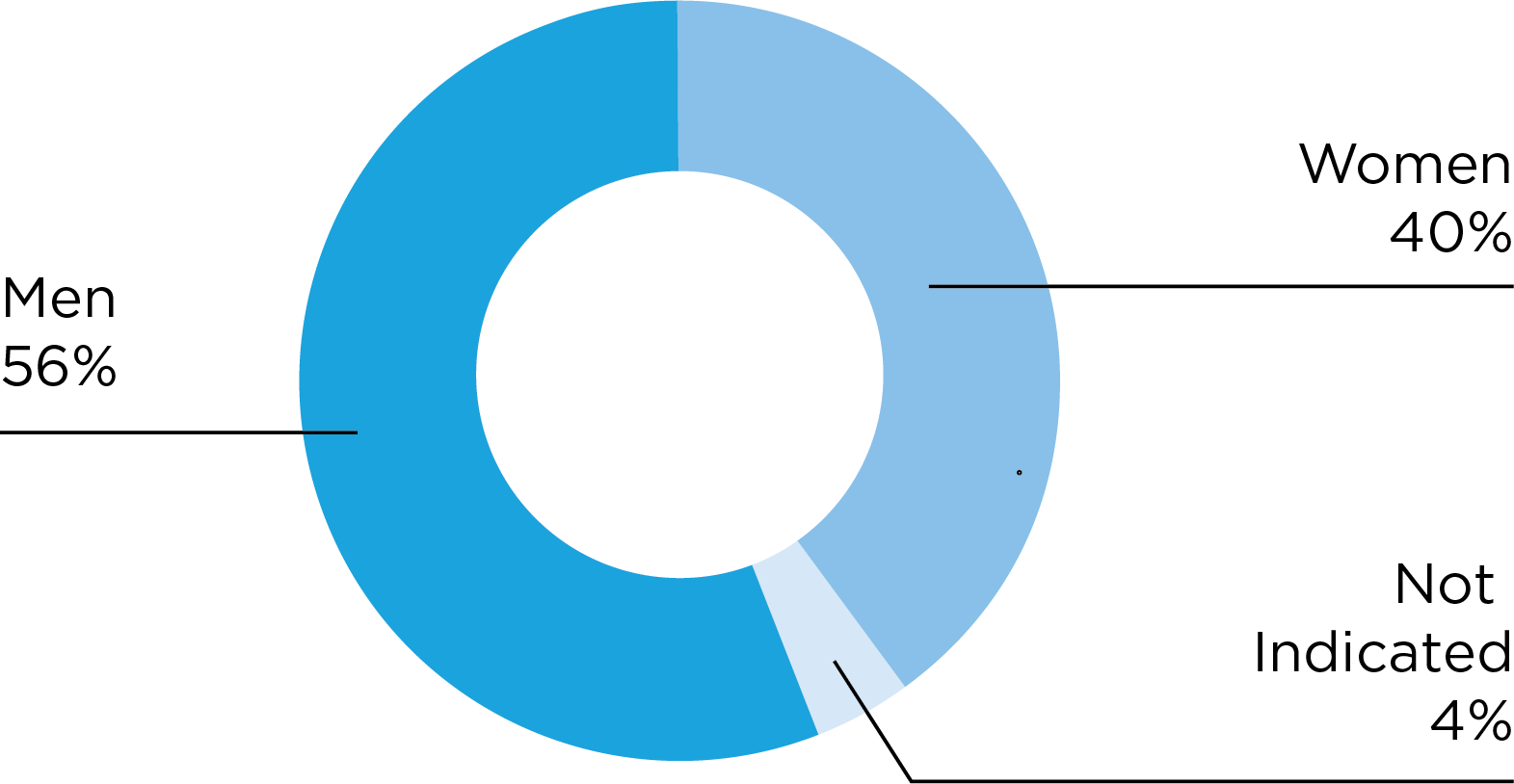
MEMBERS BY WORK SETTING
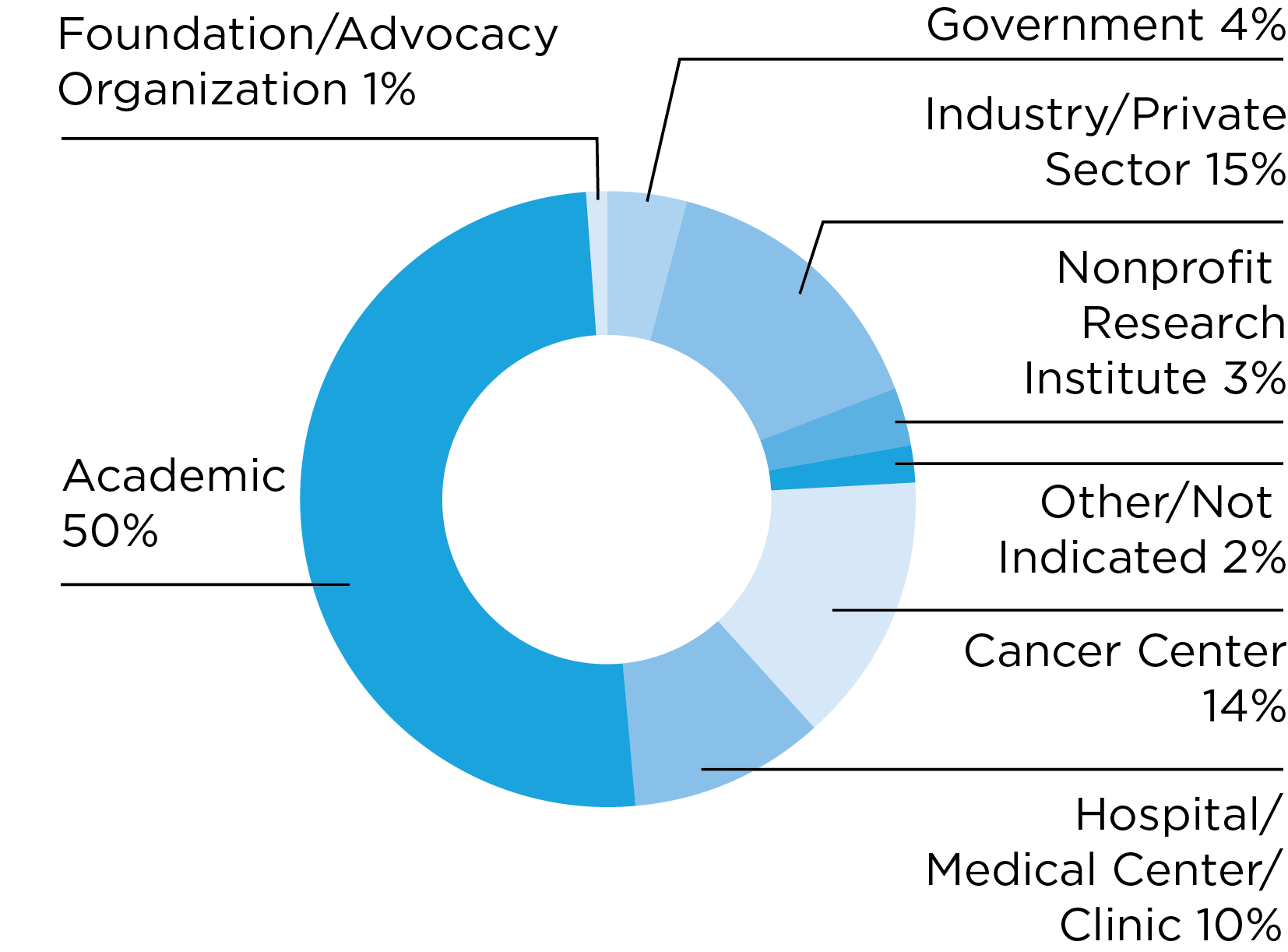
The AACR’s commitment to promoting diversity in the cancer research community is exemplified by CEO Margaret Foti, PhD, MD (hc). In October, Dr. Foti was honored with the 2018 European Society for Medical Oncology (ESMO) Women for Oncology Award for her role in supporting the career development of women in oncology. Dr. Foti received the award during the Opening Session of the ESMO 2018 Congress in Munich, Germany, during which she presented a lecture titled “The Professional Advancement of Women in Oncology: A Matter of Great Urgency for Patients.”
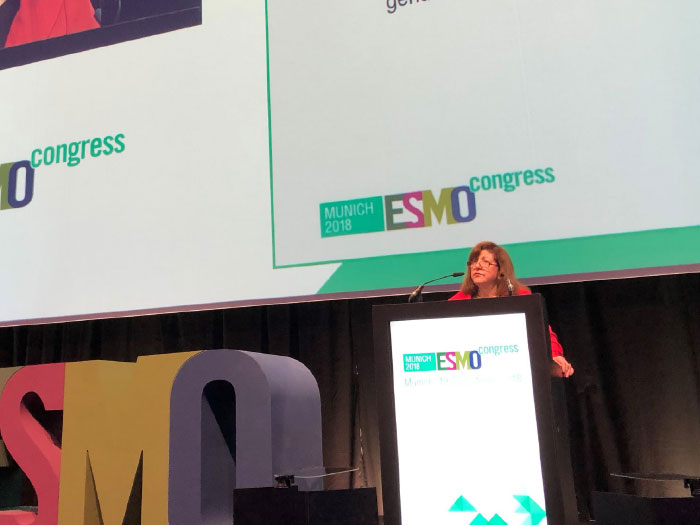
AMC serves as the leadership body for AACR associate members, who consist of graduate students, medical students and residents, and clinical and postdoctoral fellows. The council develops programs that address the particular needs of early-career scientists.
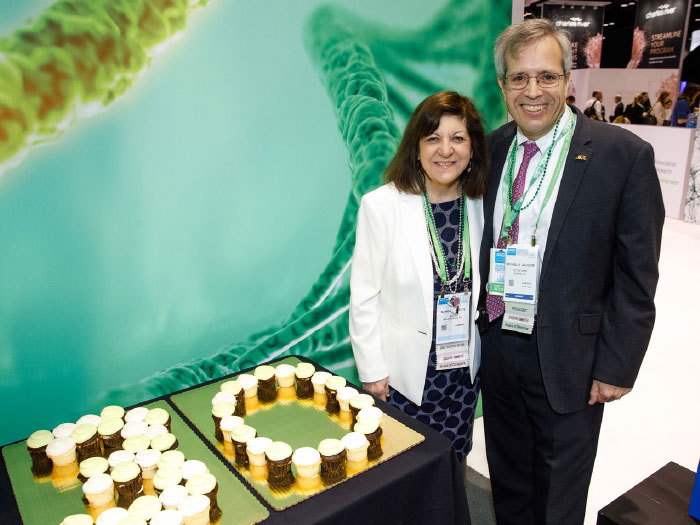
MICR is a membership group within the AACR committed to preventing and curing cancer while meeting the professional needs and advancing the careers of minority scientists.
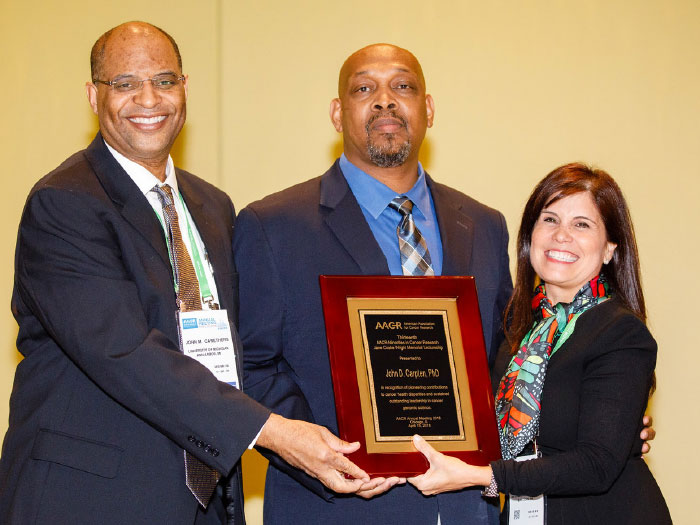
WICR is a membership group within the AACR committed to recognizing women’s scientific achievements and fostering their career development and advancement in cancer research.
